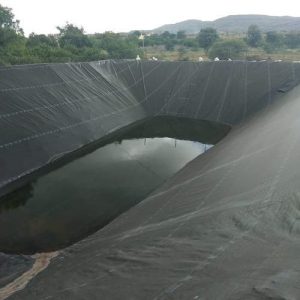All you need to know about Gabion Types, Advantages, and Applications
What are Gabions?
Gabion is from the Italian word Gabbione which literally means big cage. Essentially a welded mesh wire cage or box, it is filled with natural materials like soil, concrete, or stones. Gabions Types find extensive use in civil engineering, landscaping, military applications, and road building.
The Gabion structures are engineered from either double-twisted hexagonal or woven weld mesh. Manufactured and delivered flat, these modular units are then assembled and filled with the material at the project site. The longevity of the gabions depends on the durability of the galvanized wires.
The Gabions types dictate its use, but in recent times, Gabions are increasingly being used in architectural designs not just for aesthetics but also for functionality. It is impossible to go wrong with Gabion walls in an architectural design that demands low cost yet showcases creativity.
Table of Contents
Gabions Types and their Applications
Gabions come in various assortments. The malleability of the wire mesh makes them versatile, and the common types are gabion walls, gabion baskets, gabion mattresses, gabion sacks, and gabion wire mesh.
Gabion Basket: Primarily utilized in highways and railway works, the Gabion baskets are box-shaped wire mesh baskets that come in various sizes.
Gabion Mattresses: As mattresses, the gabions provide erosion protection. They also go by the name of reno mattresses, have a lower height, and are employed in channel coating.
Gabion Sacks: The double twisted hexagonal woven wire mesh gabions forming cylindrical sacks filled with a porous and flexible structure serve as gabion sacks. Standard deployment is in hydraulic works in emergencies.
Gabion Wire Mesh: Prominently seen on highways and railways for slope stabilization and to prevent rock/stone falls. The welded mesh or wire mesh gabions also find use in embankments in conjunction with geogrid reinforcement.
Gabion Walls: Stone-filled gabion walls are not new but are now increasingly popular with architects and designers the world over. Offering a strong structure and aesthetic appeal, they form a flexible, permeable, monolithic structure. Additionally, gabion walls are highly economical, requiring no maintenance. Gabion walls have numerous structural advantages over concrete walls and are a competitive alternative.
Advantages of Gabion Walls
- Aesthetics: Gabion walls give a very natural and aesthetically pleasing look as they use natural materials that blend with the environment. Gabion walls also serve as noise barriers.
- The modular designs of gabion cladding deliver a high visual impact in stark contrast to bland concrete walls.
- The lifecycle of gabion walls is far greater than concrete or other wall structures, not to forget the timeless design and zero maintenance.
- Since gabions use natural materials available on-site, the cost of acquisition and transport is relatively low.
- Gabion walls are completely permeable and naturally drain off the water, eliminating the need for drain pipe installation.
- Vegetation can fill the voids in the gabion walls strengthening the wall structure and offering landscaping opportunities.
- Another positive is that soil movement does not impact gabion walls negatively.
Gabion walls have endless possibilities and but their most common uses are as retaining walls, channel linings, slope protection, water barriers, embankments, or decorative elements in patios, gardens, etc.
Ocean Global in India is your go-to place for all gabions types’ requirements. Whether your project requires gabion baskets, gabion sacks, gabion mattresses, double hexagonal gabions, or weld mesh gabions, We are happy to help you with installation, pricing, design, and customization in compliance with your project.
Contact us today for your Gabions Requirement.
Similar Article:
The Ultimate Guide to Understanding Geotextiles
FAQs
How long do gabions last?
Gabions have a long lifespan, typically ranging from 50 to 100 years, depending on factors such as maintenance, exposure to environmental conditions, and the quality of materials used.
Are gabions suitable for earthquake-prone areas?
Yes, gabions can be designed to withstand seismic forces and are often used in earthquake-prone areas for retaining walls and slope stabilization.
Can gabions be used as a sound barrier?
Yes, gabions can serve as effective noise barriers when filled with appropriate sound-absorbing materials.
Ocean Non Wovens Pvt. Ltd
India’s Leading Manufacturer, Supplier & Exporter of Geomembranes & Geosynthetics
RR-24, 2nd floor, Rohtak Rd, Mianwali Nagar, New Delhi, 110087
Tel: +91 8447226007 | Email: sales@oceangeosynthetics.com



